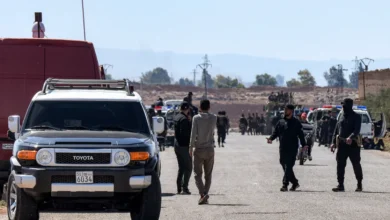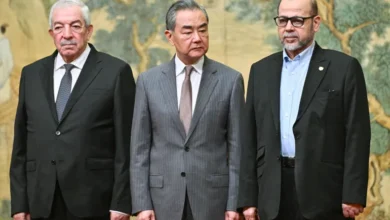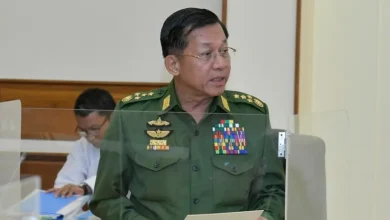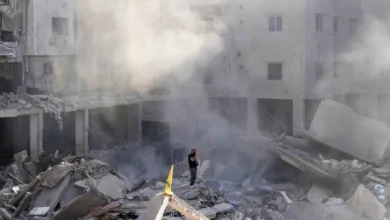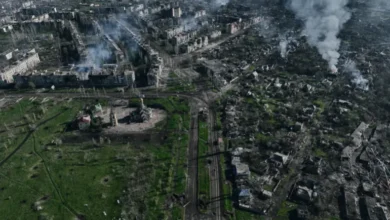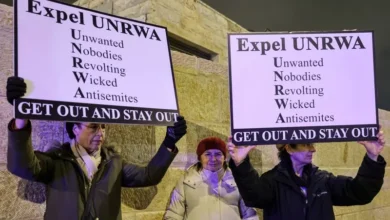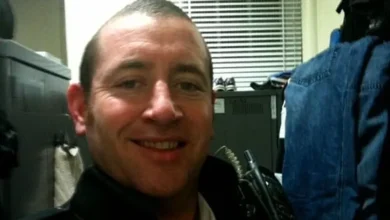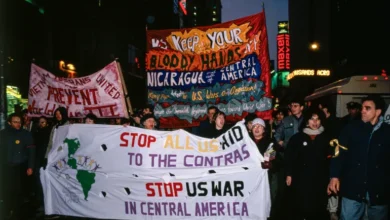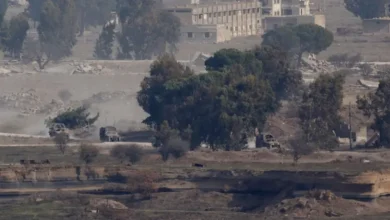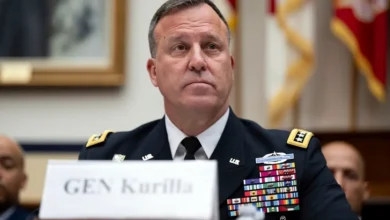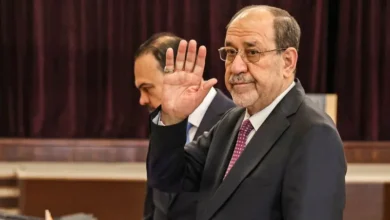Curfew in Iraq’s Kirkuk after unrest at rival protests by Arabs, Kurds
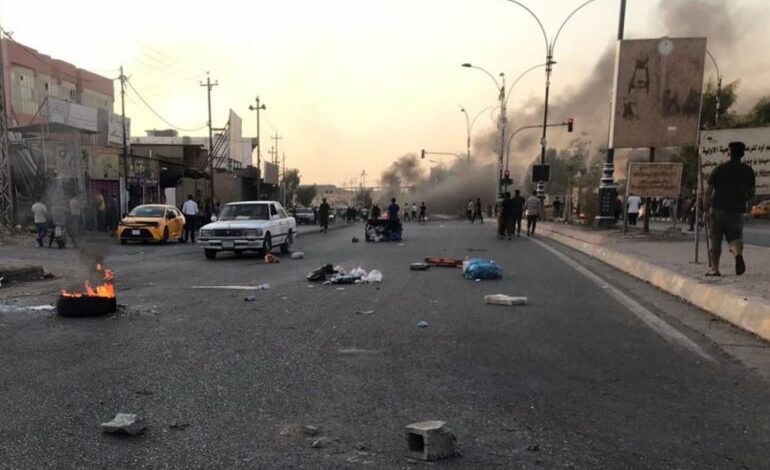
A curfew has been imposed in the northern Iraqi city of Kirkuk after rival demonstrations by Kurdish and Arab residents descended into deadly violence, according to officials.
Prime Minister Mohammed Shia al-Sudani ordered the curfew in Kirkuk as well as “extensive security operations in the areas affected by the riots”, according to a statement from his office on Saturday.
He called on all parties to “play their part in preventing strife and preserving security, stability and order in Kirkuk Governorate”.
At least one civilian was killed and eight people were injured, a local official said.
But the circumstances surrounding the death were not immediately clear, the director of the local health authority, Ziad Khalaf, told the AFP news agency, adding that those injured had been hit by bullets, stones or glass.
He said a member of the security forces was among the injured.
Tensions have been brewing for nearly a week in Kirkuk, which has historically been disputed between the federal government in Baghdad and authorities in the semi-autonomous Kurdish region in the north.
The frictions centre on the occupation of a building in Kirkuk that served as the headquarters for the Kurdistan Democratic Party (KDP) in the past but which the Iraqi army has used as a base since 2017.The central government plans to return the building to the KDP in a show of goodwill but Arab and Turkmen opponents set up a camp outside the building to protest the handover last week.
The violence on Saturday was sparked when a group of Kurdish protesters approached the camp, according to officials.Masoud Barzani, a veteran Kurdish leader, accused “rioters” of blocking the highway from Kirkuk to Erbil, the Kurdish capital, with their sit-in.
He said this was “creating a tense and dangerous situation for residents”.
Barzani said it was “surprising” that security forces had not prevented “the chaos and illegal behaviour of those blocking the road”, while on Saturday, “violence was used against Kurdish youth and demonstrators”.
His son Masrour Barzani, prime minister of the autonomous region, meanwhile called on al-Sudani in Baghdad to “intervene immediately to bring this unacceptable situation under control”.
He also urged “Kurdish citizens being persecuted in Kirkuk to show restraint and refrain from violence”.
Kirkuk, a flashpoint oil-rich province in northern Iraq along the fault lines between the Kurdish autonomous region and areas controlled by Iraq’s Shia-dominated central government, has been the focus of some of the country’s worst post-ISIL (ISIS) violence.
Kurdish forces controlled Kirkuk city after driving ISIL out in 2014 but were ejected by the Iraqi army in 2017, bringing the city back under Baghdad’s control.
When al-Sudani took power last year, he worked to improve relations between his government and the KDP and agreed to allow the party to reopen its headquarters in Kirkuk.
But Arab residents and minority groups who said they suffered under Kurdish rule, such as the Turkmen, have protested the KDP’s return.
“This incident comes at a critical time, while authorities in Baghdad and the semi-autonomous Kurdish region engage in talks to resolve several unsettled issues including the federal budget, a dispute over oil exports and the disarming of anti-Iran armed groups in the north,” Al Jazeera’s Mahmoud Abdel-Wahed said, reporting from Baghdad.
“If the situation in Kirkuk now gets out of control, it could add to Iraq’s already long list of political troubles.”
